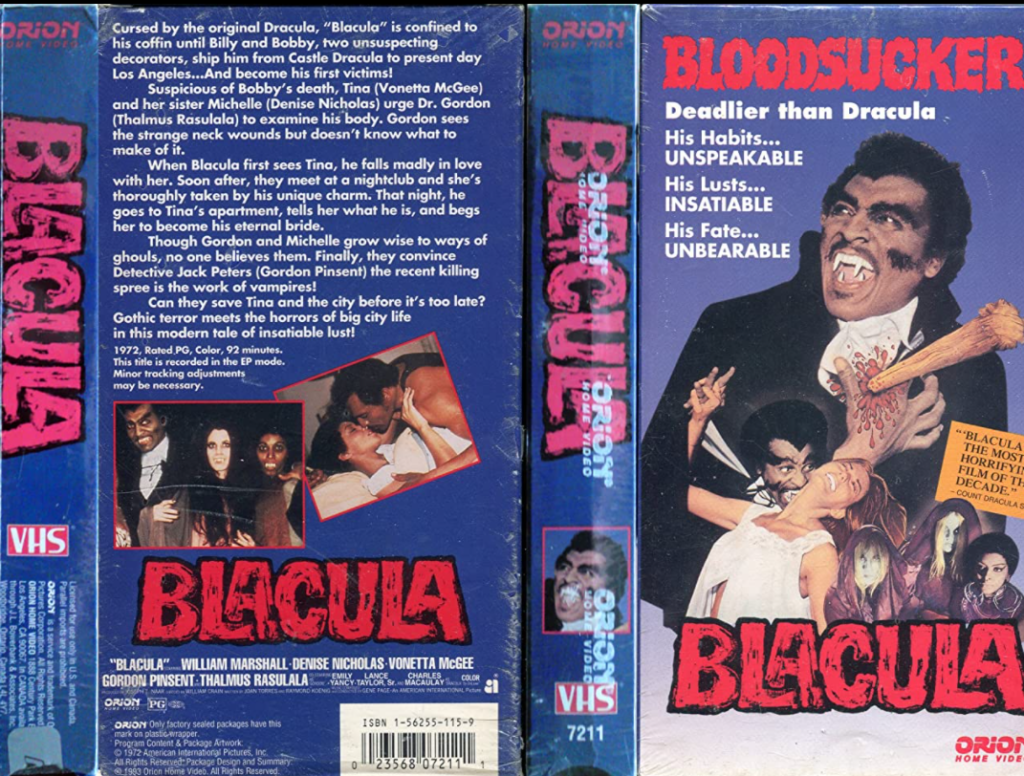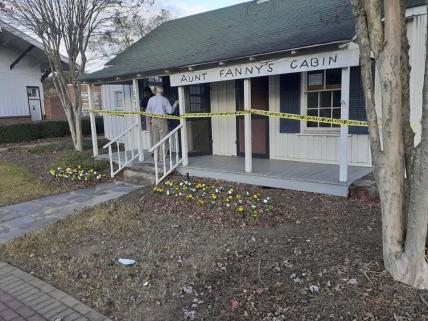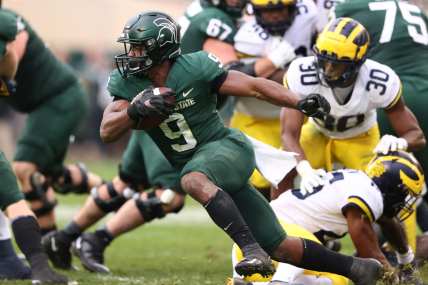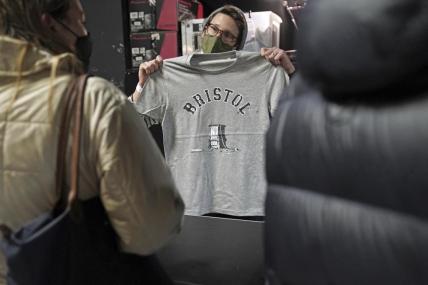Blaculas, Voodoo and Hair Grease: a review of blaxploitation horror films on theGrio TV
If you’re up for a night of blaxploitation and all that comes with it, and are looking for a horrifyingly deadly night instead of a Christmas-y one, then these four movies are the prefect way to spend an evening
Last week I binge watched theGrioTV’s marathon of blaxploitation Pam Grier movies and realized that I know nothing about blaxploitation films and that Pam Grier was pretty amazing. This week, the trek down memory lane continues as theGrio TV had me review Blacula (1972), Scream Blacula Scream (1972), Sugar Hill (1974) and the truly disturbing JD’s Revenge (1976).
Full disclosure, I know as much about Black horror films as I do about blaxploitation films in general, which is little to nothing, and most of what I’ve seen I didn’t like. However, if the purpose of a horror film is to scare you, shock you, disgust you and sometimes make you want to stop watching, then all four of these films succeeded — but perhaps not in the way that any of them intended.
Blaxplotiation and horror films are a strange mash-up because arguably the two genres have different purposes. Blaxploitation films were all about centering Black love, action, pathos and showing Black folks with agency. Most horror films are about a lack of agency: being stalked or assailed by some force beyond the character’s control, not to mention that in most horror films, Black folks barely survive the opening credits let alone get centered in the story. Black Horror, like the Shudder Network’s recent anthology series Horror Noire, is predicated on the idea that Black people have a unique way of experiencing horror and powerlessness, so you can’t just switch out a group of white teens for a group of Black teens running from some maniac with a chainsaw and get the same results.
So how do the four blaxploitation horror movies on theGrio TV fare in this tension between genres? The Blacula movies are mostly just a Black face on a white story and character, with a lot of bad make-up, chiseled cheek bones and cheap special effects. Sugar Hill and JD’s Revenge are totally Black stories that couldn’t be told without Black folks in the 70s. Yet, JD’s Revenge, the scarier and more memorable of the two, is more disturbing for its domestic horror and convoluted plot than the supernatural.
Blacula and Scream Blacula Scream are best viewed back to back — not because you’re going to miss some critical plot, but because you have to mentally prepare yourself for how ridiculous these movies are. If you stop, go to the fridge or check your laundry, you might start to wonder why you’re subjecting yourself to three hours (both movies clock in at about 90 minutes) of dreck.
Blacula starts in 1780 where Nigerian Prince Mamuwalde (played by William Marshall) decides to travel to Transylvania to seek Dracula’s help to end the transatlantic slave trade. Why would Dracula care about the slave trade? What would he even be able to do to stop it? Mamualde’s plan makes about as much sense as Martin Luther King Jr. asking Magneto for help with Civil Rights, or Nelson Mandela asking Darth Vader to stop apartheid. If you need a superpowered villain to fight your battles, shouldn’t you pick someone who can show up at a daytime rally?

Turns out, not only will he not help Mamuwalde, but Dracula is a racist and habitual line stepper, first offering to buy Mamuwalde’s wife Luva (Vonetta McGee) as a sex toy and then turning the Nigerian prince into “Blacula” and trapping him in a coffin for 200 years. When Blacula wakes up in the 70s, he kills a bunch of people, falls in love with a woman who he thinks is the reincarnated version of his wife Luva and does a horrible job of hiding the fact that he’s 200 years old. When his plans for true love go awry, Blacula decides to take a sun bath and burns to a crisp.
In Scream, Blacula Scream, he’s brought back to life by a really problematic and racist depiction of Voodoo, creates a vampire army (apparently the clearest sign that you’re a vampire is ashy skin and more pronounced cheekbones) and tries to force a totally underused Pam Grier, who plays a voodoo priestess, to cure his vampirism. Again Blacula’s best laid plans don’t work out and he dies. Again. Sort of. But, the movie ending is clearly a set up for a trilogy.
I was fairly familiar with the Blacula concept before watching these movies because it’s been spoofed for decades. The Simpsons has a scene called “Blacula Meets Black Dracula”, Jefferson Twilight from the Venture Brothers was a Blacula hunter, and even SNL has done skits about it.
In fact, while we know that T’Challa the Black Panther was created before the Black Panther Party, Blade, the Marvel vampire hunter, was created a whole year after Blacula and the blaxploitation era was clearly an inspiration for the character. Even the notion of vampirism being associated with slavery in comic books like Harriet Tubman Vampire Demon Slayer and Rodney Barnes’ fantastic series Killadelphia (seriously go check it out), was likely influenced by Blacula. Are these two movies good? They’re good in that same way that your Grandma’s greasy, cholesterol filled collard greens with bacon are still tasty even though your kale-eating, gluten-free self knows better.
Sugar Hill and JD’s Revenge are completely different kinds of horror films. They’re more steeped in a cultural and problematic vision of Blackness. Sugar Hill is basically what would happen if Michonne from the Walking Dead used Dr. Facilier from the Princess and the Frog to create a zombie army in order to get revenge on some white people. It’s a skippable film. JD’s Revenge is another beast entirely.
Out of context, the scene above from JD’s Revenge is almost funny: the horrible dialogue, the Anchorman level sexism, and a knife fight so unbelievably bloody that I’m sure every ketchup packet available was used. But JD’s Revenge is not a funny film at all. It’s cruel and disturbing and dark.
A young Glenn Turman (Colonel Bradford in A Different World, or Marty Kaan’s Dad in House of Lies) plays Isacc Hendrix, a cab driving college student with a wonderful live-in girlfriend, Christella (Joan Pringle). After a party trick gone wrong, Isaac is possessed by the spirit of 1940’s gangster JD Walker who slowly takes over Hendrix’s life in order to get revenge on a local popular preacher, Reverend Elijah and his brother Theotis. The brothers are semi-reformed gangsters. Elijah became a man of the cloth while Theotis continued their criminal empire. Both men are responsible for the death of JD and his sister some 30 years earlier. At first glance, JD’s Revenge feels like a horror film similar to Get Out or the recent Candyman reboot, where the scares come from watching a man lose control over his own body. Thurman’s transformation from nice college student to sadistic criminal is some of the best acting I’ve seen in a blaxploitation film.
The problem is, even though JD has a legitimate beef with the Bliss brothers, once he possesses Isacc he spends most of his time torturing women for no reason. While possessed by JD, Isaac brutally beats and rapes his girlfriend multiple times. And this isn’t implied violence — every sick and violent act is shown. As bad as those scenes are, watching Isaac try to woo her back because he can’t remember anything he does when JD takes over plays out like a grotesque cycle of domestic abuse. And did I mention that Isacc as JD has sex with his own niece? And that at the end of the movie, Isacc’s rampage of rape and violence is forgiven because everyone, from the cops to his girlfriend, finally believes that that he was possessed by a hustler from the 1940’s who’s finally left his body? Yeah, this movie is a mess.
Credit theGrio TV with it’s bold counterprogramming this weekend. Most people would probably rather curl up with a formulaic Lifetime Christmas Rom-Com than a 4-hour marathon of violence, Voodoo, rape, and gunplay interspliced with the casual use of slurs like nig**r and fa**ot, but maybe people are just built different. If you’re up for a night of blaxploitation and all that comes with it, and are looking for a horrifyingly deadly night instead of a Christmas-y one, then these four movies are the prefect way to spend an evening.
Have you subscribed to theGrio podcasts, Dear Culture or Acting Up? Download our newest episodes now!
TheGrio is now on Apple TV, Amazon Fire, and Roku. Download theGrio today!
More About:Entertainment












